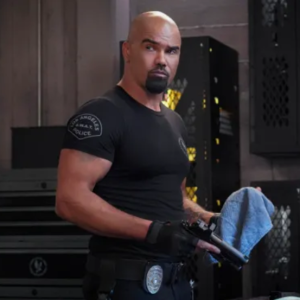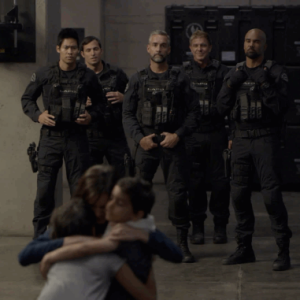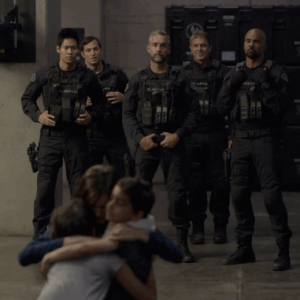The popular action-drama series S.W.A.T. recently concluded its remarkable eight-season run, leaving its dedicated fan base with a bittersweet taste of both satisfaction and longing. While the immediate end of the series might have felt like a void, the announcement of a forthcoming spin-off has quickly turned disappointment into renewed anticipation, promising a new chapter for the beloved S.W.A.T. universe. This resilience and ability to reinvent itself has become a hallmark of the franchise, which famously survived multiple cancellation threats throughout its original run, a testament to its loyal following and compelling narrative.
S.W.A.T. distinguished itself within the crowded landscape of television procedurals by delivering a consistently fast-paced, action-packed, and emotionally resonant portrayal of an elite police tactical unit. Unlike many of its counterparts, the show embraced a grittier realism, often mirroring the complex social and ethical dilemmas faced by real-world law enforcement. At its core was Sergeant Daniel “Hondo” Harrelson Jr., portrayed by Shemar Moore, who led his Twenty Squad with a unique blend of strategic brilliance, unwavering loyalty, and deep community understanding. The series painted a nuanced picture of these “brothers in blue,” acknowledging their flaws and personal struggles while highlighting their profound dedication to public service and the intricate, often dangerous, work of upholding justice.
Beyond its thrilling action sequences, S.W.A.T. courageously tackled heavy and timely themes. From its very first season, the show delved into sensitive issues such as discrimination, police reform, community relations, and systemic inequalities, themes that resonated deeply with contemporary audiences. Shemar Moore himself addressed this commitment in a 2017 interview, stating, “There’s a lot of fear, there’s a lot of racism, there’s a lot of distrust going on in this country, and I think S.W.A.T. is going to address that, but … not in a preachy way.” This philosophy allowed the series to explore the challenges of policing in a diverse, often polarized society, offering perspectives from both within the force and the communities it served. Episodes frequently featured storylines that explored racial profiling, the complexities of gang violence, the opioid crisis, and the psychological toll of high-stakes operations on officers, all without sacrificing its entertainment value or becoming overtly didactic. The show’s ability to blend intense action with thoughtful social commentary cemented its place as more than just a standard cop show; it was a reflection of modern American society through the lens of law enforcement.
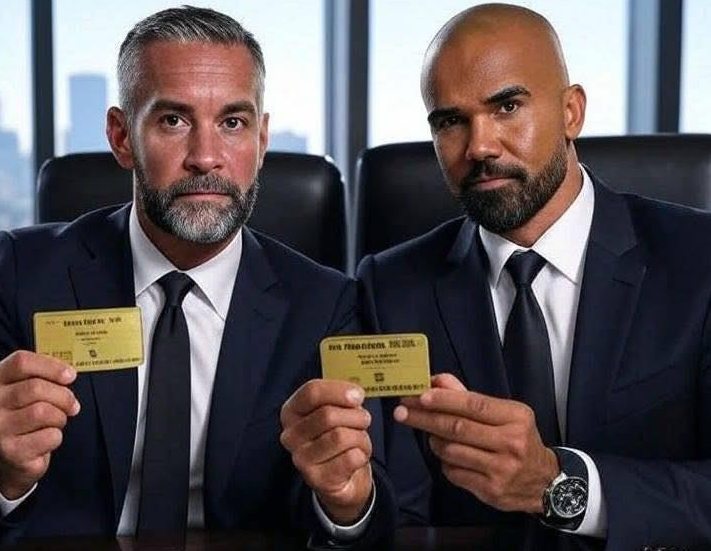
The “S.W.A.T. family” extended beyond Hondo to an ensemble of well-developed characters who contributed significantly to the show’s enduring appeal. Deacon Kay, the seasoned veteran and Hondo’s trusted second-in-command, provided a moral compass and a grounded perspective. Jim Street, the talented but impulsive rookie, navigated a journey of growth and redemption. Christina “Chris” Alonso broke barriers as a skilled female officer in a male-dominated field, grappling with her identity and personal relationships. Victor Tan offered wit and sharp investigative skills, while Dominic Luca brought a unique blend of humor and tactical expertise. Their individual arcs, personal struggles, and unwavering camaraderie forged a believable and deeply engaging team dynamic that viewers invested in over eight seasons. This strong ensemble chemistry was a crucial factor in the show’s success, making the “S.W.A.T. family” feel truly palpable both on-screen and behind the scenes.
The journey of S.W.A.T. was not without its dramatic turns. Remarkably, the show faced cancellation not once, but three times throughout its run. Each time, a passionate outcry from its devoted fan base, combined with the show’s strong performance in streaming and international markets, convinced CBS and Sony Pictures Television to reverse their decisions. These repeated acts of defiance against cancellation underscored the fervent loyalty of its viewers and the undeniable value the show brought to its network and studio. It was this extraordinary fan power that ultimately paved the way for the series’ prolonged life and, eventually, the exciting prospect of a spin-off.
The rumors of a spin-off began to solidify, with early reports indicating that Shemar Moore would reprise his role as Hondo. This news initially drew a mixed reception, particularly when it was suggested that Hondo’s co-stars might not be involved in the new venture. However, Sony Pictures Television swiftly moved to clarify the situation, hinting that more of the beloved cast could indeed return. Keith LeGoy, Chairman of Sony Pictures Television, issued a reassuring statement that resonated with fans: “There is a S.W.A.T. family and that family is important. We would love to have other family members involved in some way, whether it’s all of them all of the time, some of them some of the time, or something in between. That’s something that we are still figuring out.” This statement provided a much-needed sense of continuity and acknowledged the integral role the full ensemble played in the show’s success.
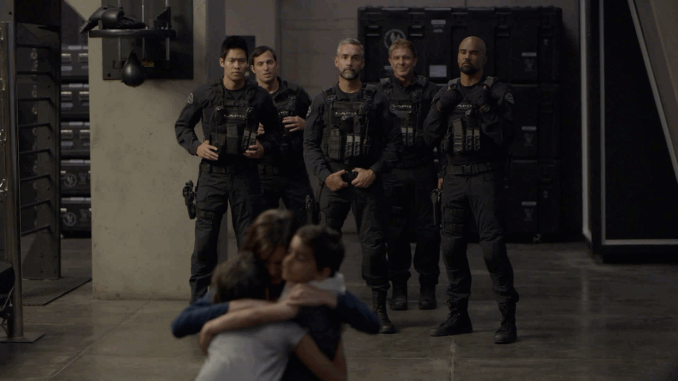
As of now, Shemar Moore remains the only actor officially confirmed for the spin-off, titled S.W.A.T. Exiles. Moore himself has been vocal about the evolving landscape of the show and the potential backlash that comes with change. Taking to Instagram, he enthusiastically teased the new direction: “The game has changed. But S.W.A.T. Exiles, baby! Bigger, bolder. S.W.A.T. on steroids.” He also addressed the understandable apprehension from fans, acknowledging, “Nobody likes change. I understand that. I get it 100%. But without change, you can’t grow. You can’t win without taking your lumps…. It ain’t easy making it in the game of Hollywood. It ain’t. TV shows don’t last eight years anymore.”
The title S.W.A.T. Exiles suggests a significant shift in Hondo’s operational scope. The term “exiles” implies a departure from traditional law enforcement structures, possibly hinting at Hondo operating in an international capacity, off-the-books, or with a newly formed, highly specialized team. This could allow for more expansive storylines, higher stakes, and a departure from the procedural confines of the original series, aligning with Moore’s promise of a “bigger, bolder” experience. Whether this new iteration will see Hondo working with former colleagues in guest roles, or introducing an entirely new supporting cast, it represents an ambitious attempt to extend the franchise’s legacy while adapting to new narrative possibilities.
S.W.A.T.’s journey from a seemingly ordinary procedural to a resilient cultural touchstone, defying multiple cancellations and now paving the way for a spin-off, speaks volumes about its impact. It stands as a testament to compelling storytelling, relatable characters, and a willingness to engage with real-world issues. As S.W.A.T. Exiles prepares to take center stage, the future of the S.W.A.T. universe promises to be as dynamic and action-packed as its predecessor, ensuring that the legacy of Hondo and his team continues to thrive for years to come.

